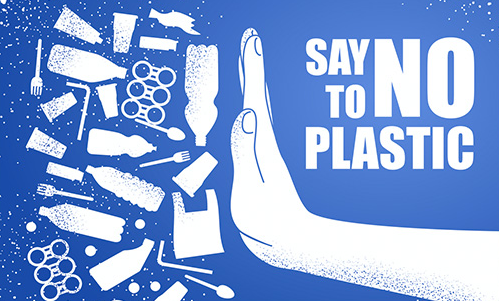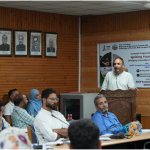World Environment Day, celebrated annually on June 5th, is a day dedicated to raising awareness about environmental issues and promoting global action to protect the planet. This year’s theme, “Beat Plastic Pollution,” recognizes the urgent need to take strong action against the growing plastic menace all over the globe and emphasizes the role that individuals and communities can play in restoring nature. It is a fact that the state of the world’s environment is a cause for grave concern. Climate change, deforestation, plastic pollution, and loss of biodiversity are just some of the issues that threaten the health of our planet and the well-being of its inhabitants. The COVID-19 pandemic has brought into sharp focus the interdependence between human health and the health of the environment, highlighting the urgent need for action to protect and restore our planet. Ecosystem restoration is a critical area of focus for environmental action. Ecosystems provide essential services such as clean air and water, food, and raw materials for human use. They also play a crucial role in regulating the Earth’s climate and mitigating the impacts of climate change. However, many ecosystems around the world have been severely degraded or destroyed, resulting in significant impacts on both human and ecological health. Restoring damaged ecosystems is a complex and challenging task, but it is also an opportunity to create a more sustainable future for all. Ecosystem restoration projects can provide numerous benefits, such as improving soil quality, enhancing biodiversity, and mitigating climate change. They can also provide economic benefits, such as creating jobs and supporting local communities. Individuals and communities can play a critical role in ecosystem restoration. Small actions, such as planting a tree, reducing waste, or supporting sustainable agriculture, can have a significant impact on the health of local ecosystems. Governments and businesses also have a vital role to play in supporting ecosystem restoration efforts through policies and investments that promote sustainable practices. However, the scale of the challenge of ecosystem restoration requires a coordinated global response. International cooperation and collaboration are crucial to ensuring that restoration efforts are effective and sustainable. On this World Environment Day, let us all commit to taking action to protect our environment. Whether through individual actions or global collaboration, we can all make a difference and contribute to a more sustainable future. By making a plastic-free world, we can create a healthier planet for ourselves and future generations.
World Environment Day

Sign Up For Daily Newsletter
Be keep up! Get the latest breaking news delivered straight to your inbox.
By signing up, you agree to our Terms of Use and acknowledge the data practices in our Privacy Policy. You may unsubscribe at any time.
Leave a Comment
Leave a Comment
Stay Connected
Latest News
Recent Posts
- Govt committed to improving people’s lives: Javed Rana
- AIFOF office bearers call on Rana
- Shri Buddha Amarnath Yatra : CCTV cameras installed along 14 km route
- Outreach prog for agri start-ups under JKCIP begins at SKUAST-K
- IUST organises workshop to strengthen institutional readiness for NAAC reassessment







